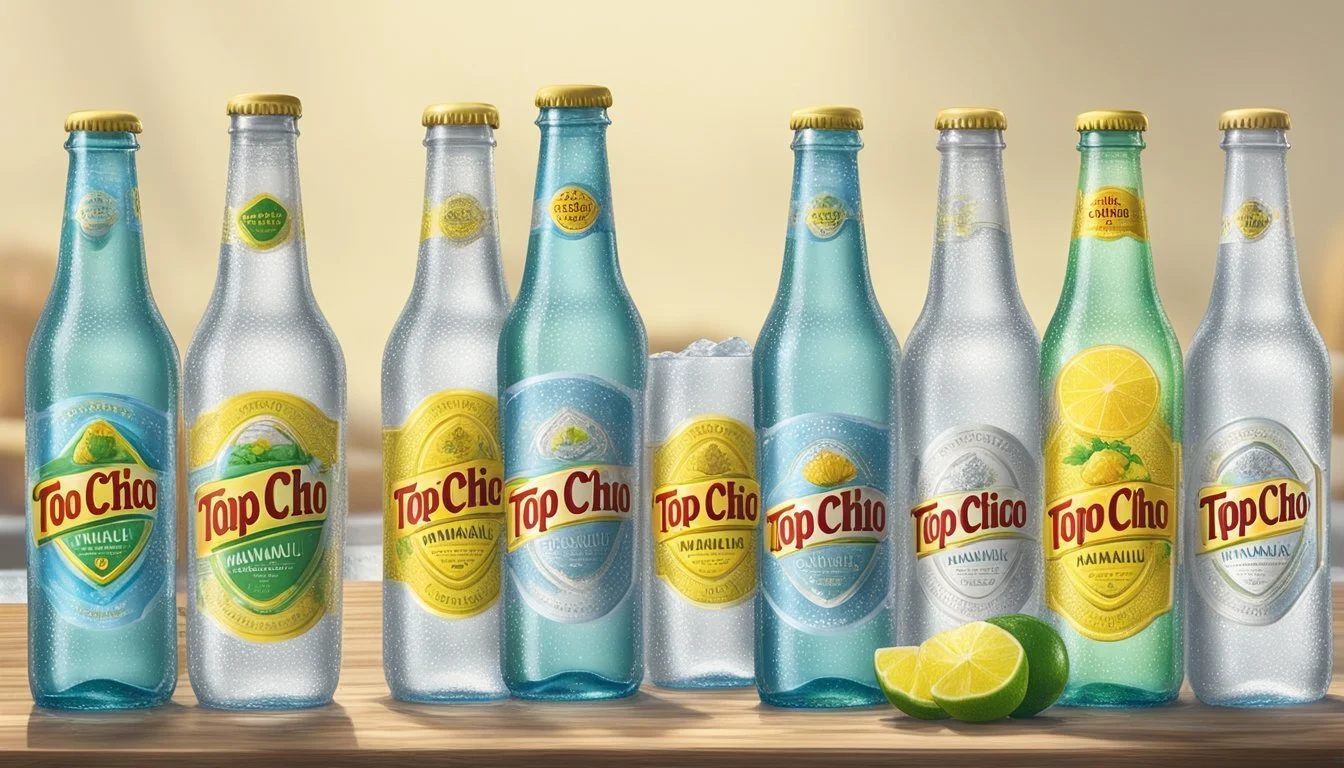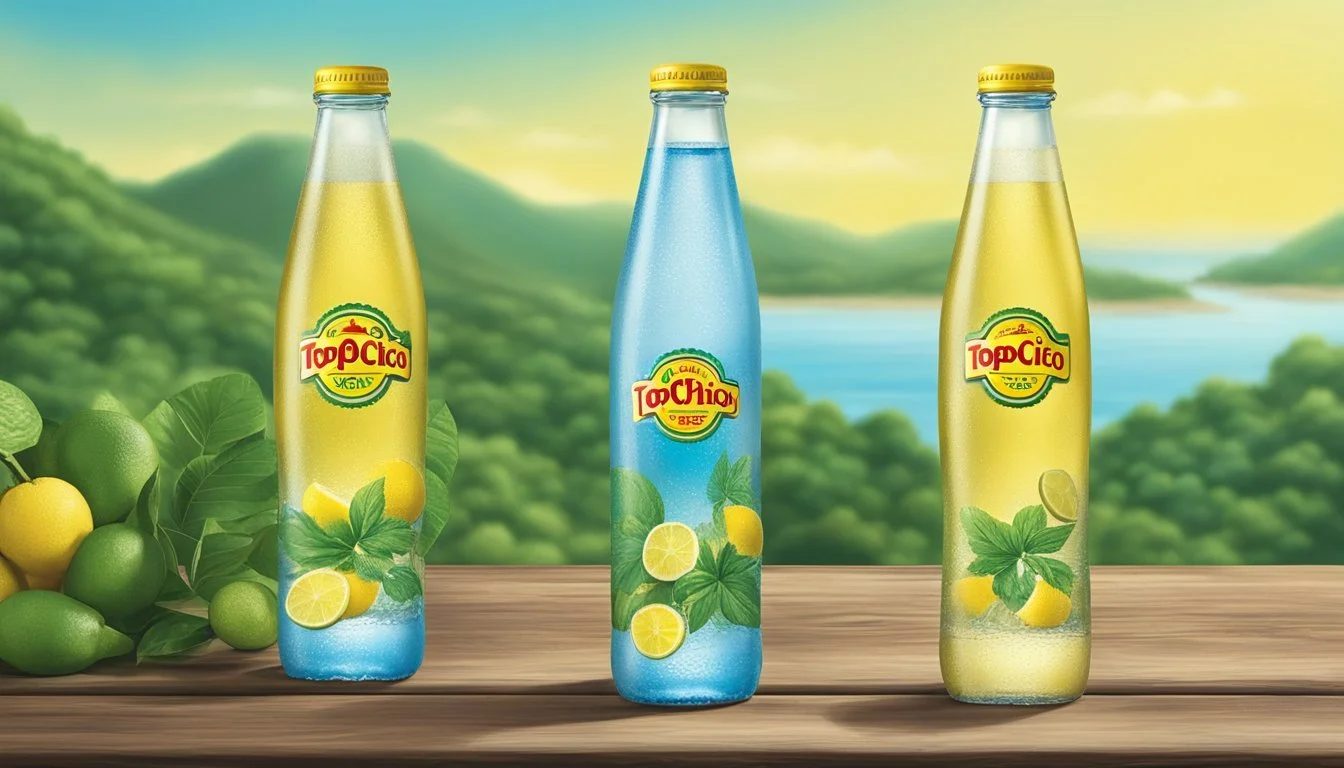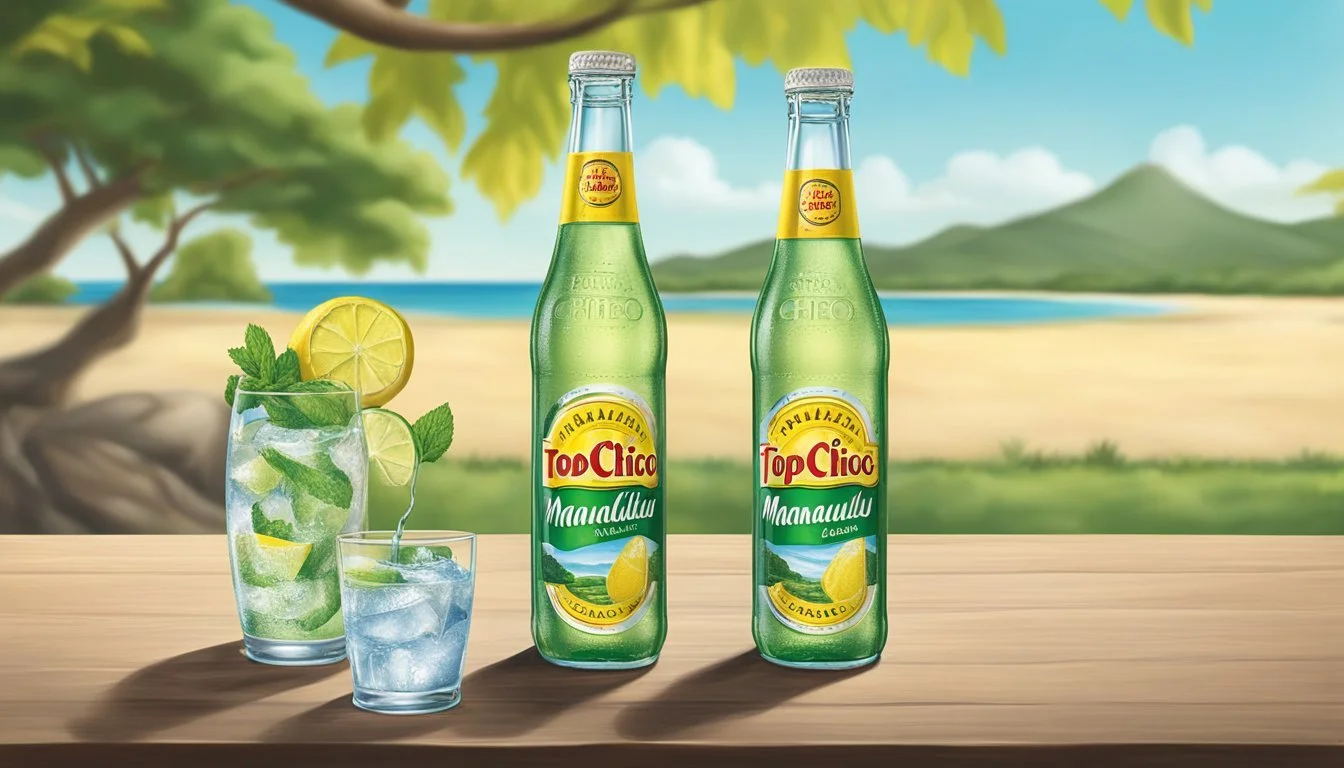Topo Chico vs. Mananalu
A Comprehensive Bottled Water Comparison
When it comes to choosing between Topo Chico and Mananalu, enthusiasts of bottled water often find themselves at a crossroads. Topo Chico's intense carbonation and crisp mineral flavor have cemented its reputation among sparkling water aficionados, while Mananalu offers an eco-conscious alternative with its still and sparkling water options packaged sustainably. Both brands provide distinct benefits, catering to different preferences and values.
Topo Chico, with its origins in Monterrey, Mexico, is beloved for its robust bubbles and refreshing taste, making it a standout in the world of sparkling mineral water. On the other hand, Mananalu, backed by actor Jason Momoa, pledges to combat plastic waste with its innovative aluminum packaging, a choice that strongly appeals to environmentally conscious consumers.
For those considering health and hydration, both brands have factors to weigh. While Topo Chico has reduced the levels of PFAS (per- and polyfluoroalkyl substances) in its water, some concerns remain about these chemicals. Meanwhile, Mananalu’s eco-friendly stance doesn’t compromise on the quality of hydration, positioning it as a worthy contender in the bottled water market.
Historical Background
Topo Chico and Mananalu have distinct histories, reflecting their unique origins and missions. The former traces its roots back to a mineral-rich source in Mexico, while the latter is a modern entrant focused on environmental sustainability.
Origins of Topo Chico
Topo Chico originates from Monterrey, Mexico, with a history dating back to 1895. The water comes from the Cerro del Topo Chico, a mountain known for its mineral springs.
Legend has it that the water was originally sought for its reputed healing properties. The brand gained popularity over the decades, known for its crisp, effervescent character. It is now widely recognized and cherished, particularly across the Americas.
Emergence of Mananalu
Mananalu was founded by actor Jason Momoa in 2019, driven by an environmental mission to reduce single-use plastic waste. The water is sourced from multiple U.S. locations including Bozeman, Montana, and Montebello, California.
Mananalu water is packaged in aluminum bottles, which are 100 percent recyclable. This initiative reflects Momoa's commitment to sustainability. The brand's focus on eco-friendly packaging sets it apart in a crowded market, appealing to environmentally conscious consumers.
Product Overview
When comparing Topo Chico and Mananalu, identifying the mineral content and the type of water—sparkling or still—are essential factors. Understanding these aspects helps consumers make informed decisions about which water best fits their preferences and needs.
Understanding Mineral Content
Mineral content plays a significant role in the taste and health benefits of bottled water. Topo Chico is recognized for its high mineral content, including calcium, magnesium, and sodium. These minerals contribute to its distinctive taste and slightly alkaline pH.
Calcium supports bone health, while magnesium aids in muscle function. Sodium, though necessary in small amounts, can impact those on low-sodium diets.
Mananalu, on the other hand, focuses on sustainability and taste. It contains a balanced mix of minerals like potassium and magnesium, contributing to a clean and refreshing taste. This bottled water aims to offer hydration with minimal environmental impact, emphasizing eco-friendly packaging.
Comparing Sparkling and Still Water
Topo Chico is predominantly known for its sparkling mineral water. The carbonation provides a refreshing effervescence that many enjoy. Sparkling water like Topo Chico can be a great alternative to sugary sodas, offering a bubbly experience without added sugars.
Mananalu specializes in still water, which appeals to those preferring a smooth, non-carbonated experience. Still water is especially suitable for everyday hydration needs and is often recommended for its simplicity and wide availability.
Both brands cater to different preferences, with Topo Chico's bicarbonate contributing to the carbonation process and Mananalu's focus on pure, uncarbonated still water.
Health Considerations
When evaluating the health considerations of Topo Chico and Mananalu, several factors come into play, including mineral benefits, potential contaminants, and hydration quality. Understanding these aspects helps in choosing the healthier option.
Evaluating Mineral Benefits
Topo Chico and Mananalu both offer potential health benefits through their mineral compositions. Topo Chico is renowned for its high mineral content, including calcium, magnesium, and sodium, which are essential for bone health and other bodily functions.
Mananalu, marketed as a purified water, may have fewer natural minerals than its sparkling counterpart. Consumers seeking specific health benefits from minerals might prefer Topo Chico for its broader range of beneficial compounds.
In summary, the mineral composition of Topo Chico may contribute more to daily nutritional needs compared to Mananalu.
Potential Contaminants
Both brands address the issue of potential contaminants differently. A recent study raised concerns about Topo Chico containing high levels of PFAS, or "forever chemicals," which could pose long-term health risks. According to Consumer Reports, Topo Chico’s PFAS levels, though reduced, remain above certain recommended safe limits.
On the other hand, Mananalu, though in aluminum packaging which is generally considered safe, still requires vigilant quality checks for heavy metals like arsenic and lead. Legal limits set by the FDA regulate these metals, ensuring they stay within safe consumption levels.
Considering safety, consumers might weigh the risks of PFAS in Topo Chico against the general safety of Mananalu’s purified water.
Hydration and Water Quality
Both Topo Chico and Mananalu promise good hydration, though they cater to different preferences. Topo Chico’s carbonation can provide a more refreshing experience which some consumers might find helps them drink more water.
Mananalu emphasizes purity, offering hydration without added carbonation, which might be preferred for individuals with specific health needs or sensitivities to fizzy drinks.
Water quality in both brands adheres to stringent safety standards, but preferences may vary based on individual needs. Carbonation might enhance the appeal of Topo Chico despite potential health drawbacks, while Mananalu’s pure, still water may cater to those prioritizing safety and taste.
When making a choice, it’s essential to balance personal health goals with the unique features of each brand.
Taste Profile
Topo Chico and Mananalu both offer unique taste experiences, influenced by their distinct production processes and packaging. These factors significantly impact the flavor and mouthfeel of each water.
Flavor Characteristics
Topo Chico is known for its distinctive mineral taste and natural effervescence. The mineral content, combined with its carbonation, creates a crisp and refreshing flavor. Popular flavors include lime and grapefruit, which add a subtle citrus note without overwhelming the base minerality.
Mananalu, on the other hand, focuses on a clean and smooth flavor derived from its purified still water. The emphasis is on purity, with the water undergoing multiple levels of filtration to ensure minimal to no mineral taste. This results in a neutral profile that appeals to those preferring a soft and unadulterated water taste.
The Significance of Packaging
Packaging plays a crucial role in the overall taste experience of each brand. Topo Chico is traditionally bottled in glass, which is often preferred for preserving carbonation and flavor integrity. Glass bottles help maintain the water’s effervescence and crisp mouthfeel over time.
In contrast, Mananalu uses aluminum bottles that are designed to be lightweight and environmentally friendly. These bottles offer a sleek and modern appearance while ensuring the water maintains its clean taste without any plastic contamination. By avoiding plastic, Mananalu aims to provide a purer taste experience.
In summary, the taste profiles of Topo Chico and Mananalu cater to different preferences, with Topo Chico offering a mineral-rich, effervescent experience and Mananalu providing a smooth, clean flavor.
Environmental and Economic Impact
Both Topo Chico and Mananalu strive toward environmentally friendly and economically viable solutions in the bottled water industry. Their approach to packaging and production reflects their commitment to sustainability and cost efficiency.
Packaging and Sustainability
Mananalu emphasizes sustainability by using 100 percent recyclable aluminum cans instead of plastic bottles. Founded by Jason Momoa, the brand aligns with his environmental activism. The partnership with rePurpose Global ensures that one plastic bottle's worth of ocean-bound waste is removed for every bottle sold. This initiative has eliminated the equivalent of 15 million bottles to date.
Topo Chico, owned by Coca-Cola, has taken steps to reduce the PFAS chemicals in its product. Despite significant reductions, ongoing efforts are needed to lower these levels further due to the persistent nature of these "forever chemicals".
In summary, Mananalu focuses on reducing plastic waste and promoting aluminum cans, while Topo Chico addresses chemical safety and sustainability within its production process.
The Cost of Production
From an economic perspective, the cost implications of both brands' production processes vary. Aluminum cans, used by Mananalu, are generally more expensive to produce than plastic bottles. However, the environmental benefits, such as reducing plastic pollution and the ecological footprint, offer long-term cost savings through increased efficiencies and consumer goodwill.
Topo Chico has invested significantly in their water treatment facilities to lower PFAS levels, which is a costly process. Despite the higher production costs, this investment is critical for meeting regulatory standards set by the Environmental Protection Agency and maintaining consumer trust.
Ultimately, while Mananalu may have higher initial production costs, the brand capitalizes on its sustainable reputation. Topo Chico continues to balance the economic costs of advanced water treatment with its market position as a premium water brand.
Consumer Choice
Consumers have various factors to consider when choosing between Topo Chico and Mananalu, ranging from market availability to fan loyalty and potential uses in cocktails.
Market Availability
Both Topo Chico and Mananalu have a broad presence on Amazon and in retailers. Topo Chico's long history since 1895 in Monterrey, Mexico, has established it in many international markets. Its acquisition by Coca-Cola expanded its reach further.
Mananalu, founded by actor Jason Momoa, aims at sustainability and reducing single-use plastics. It's quickly available in eco-conscious markets and emerging in mainstream stores. However, it may not yet match Topo Chico's extensive distribution network.
Cult Following and Brand Loyalty
Topo Chico has a loyal cult following, particularly in Texas and Mexico. Its unique mineral content and signature carbonation make it a favorite for many. Despite recent concerns over PFAS chemicals, efforts to reduce these contaminants have been well-received by its dedicated fanbase.
Mananalu, despite being newer, cultivates strong brand loyalty through its environmental mission. Fans appreciate its recyclable aluminum packaging, appealing to eco-friendly consumers. The strong public image tied to its founder also adds to its growing popularity.
Applications in Mixology
Topo Chico is renowned for its use in cocktails, particularly mixers. Its high carbonation level makes it a versatile choice for drinks like gin and tonic or with Blanco Tequila. Bartenders often prefer it for the consistent fizziness and subtle mineral taste.
Mananalu's smooth profile suits simple cocktails but might lack the effervescence for complex mixes. Its eco-friendly image, however, appeals in venues focused on sustainability. While it can be used in cocktails, it’s often selected for the statement it makes about reducing plastic waste.
Regulatory Overview
Both Topo Chico and Mananalu must adhere to stringent regulations to ensure safety and quality. These regulations are essential in the bottled water industry to safeguard consumers from contaminants and ensure transparency.
Food and Drug Administration Guidelines
The FDA regulates bottled water in the United States. It enforces standards on contaminants such as microorganisms, metals, and other substances. For bottled water, the FDA's regulations emphasize limits on Total Dissolved Solids (TDS), pH levels, and specific contaminants.
The Total Dissolved Solids (TDS) measure the combined content of all inorganic and organic substances contained in the water. The FDA sets the TDS limit at 500 ppm for purity and acceptability.
The FDA also monitors specific contaminants like lead, arsenic, and chlorides to ensure they remain within safety limits. Bottled water companies must regularly test and report the levels of these substances.
International Standards and Associations
Globally, bottled water standards vary. In the European Union, water quality is governed by the European Food Safety Authority (EFSA) and must comply with the Drinking Water Directive.
The International Bottled Water Association (IBWA) sets additional quality guidelines that often exceed national standards. Both Topo Chico and Mananalu benefit from adhering to these international regulations, especially if they distribute products globally.
These regulations focus on water source, treatment processes, and packaging standards. Companies like Mananalu, which emphasizes eco-friendly packaging, also adhere to guidelines promoting environmental sustainability.
Key International Standards:
WHO Guidelines: World Health Organization sets global criteria for drinking water quality.
ISO Standards: International Organization for Standardization provides benchmarks for processing and quality management.
More About Topo Chico
More About Mananalu
Hawaiian Springs vs Mananalu: Which Bottled Water is Better?
Icelandic Glacial vs Mananalu: Which Bottled Water is Better?
Mananalu vs Cascade Mountain: Which Bottled Water is Better?
Mananalu vs Kirkland Signature: Which Bottled Water is Better?
Mananalu vs Richard's Rainwater: Which Bottled Water is Better?
Mananalu vs Talking Rain AQA: Which Bottled Water is Better?
Mananalu vs Whole Foods Italian Still Mineral water: Which Bottled Water is Better?
Mountain Valley Spring Water vs Mananalu: Which Bottled Water is Better?
Nestle Pure Life vs Mananalu: Which Bottled Water is Better?





